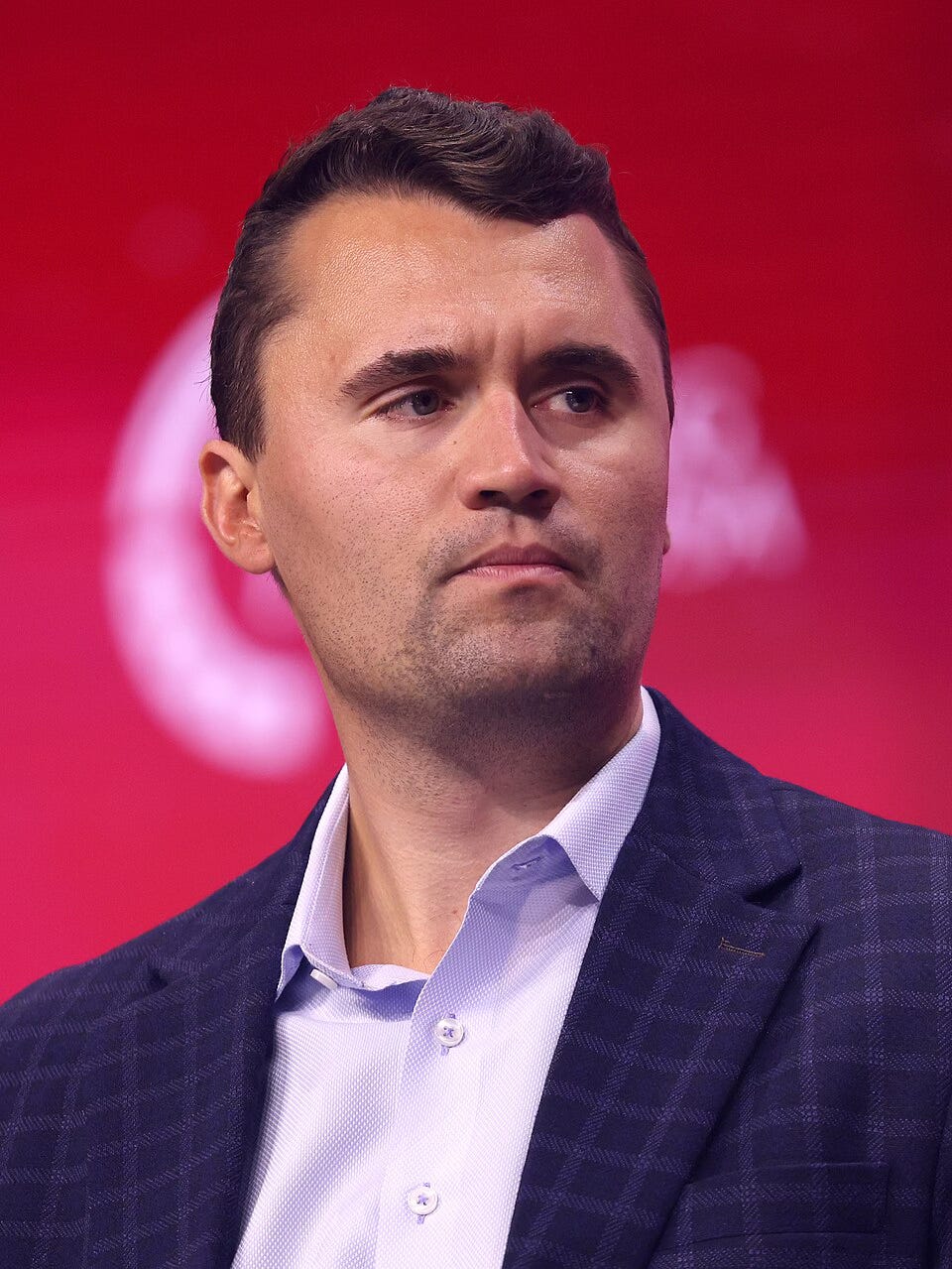The Increasing Complexity of Shared Grief
And one small step we can take
By Gage Skidmore - https://www.flickr.com/photos/gageskidmore/54670961811/, CC BY-SA 4.0, https://commons.wikimedia.org/w/index.php?curid=172612805
I didn’t know much about Charlie Kirk and I didn’t need to learn anything new in order to qualify the sadness I felt when he was assassinated. He was a young man, husband, and father of two children. He was an image bearer whose life was taken and whose children must now live with the devastation.
The manner in which he died was also tragic. He was murdered while inviting people to a conversation, to not only challenge their views, but with an openness for them challenge his own. Those reasons alone are sufficient for our collective grief. But not everyone is sad.
I don’t remember the last time I experienced such a polarity of perspectives around the death of a public person. Sure, there are people who loved Michael Jackson, and people who refuse to play his songs. People who loved Hulkamania, and people who felt betrayed by Terry Bollea. The death of public figures may evoke different emotions in us, but there is normally some consensus on the merits of their professional career and personal character.
But I don’t remember the last time I saw a man receive such contradicting testimonies. It’s one thing when scholars and historians debate the complexity and totality of a person’s life. But it’s another thing when it’s people you know that have drawn such differing conclusions. Some referred to him as “a brother in Christ and a martyr for the Christian faith,” while others claimed he was “a racist and fascist.” We may have seen him embrace his children, engage in good faith debates, and call people to give their lives to Jesus. And we may have also seen him callously talk about the victims of gun violence, encourage racial profiling, and endorse Christian nationalism.
Anyone who was unfamiliar with Charlie Kirk’s life may have noticed their social media algorithm’s eagerness to reveal both his best and worst deeds, until of course, it discovered which of those we found more compelling. A man’s life, his virtues and vices, all of it summarized in a relentless barrage of 30 second clips for our judgment and consumption. But make no mistake about it. In our attempt to draw our conclusions, we aren’t following the evidence as much as it’s following us.
Moments after I shared a link regarding a theory surrounding his death, I was surprised that nearly every subsequent post in my feed reinforced that theory. It had little regard for whether the story was true but only cared that I remained engaged.
Dear friends, this is one of the reasons it will be increasingly difficult for us to share a collective grief in our nation and within our closest relationships. We will continue to live in diverging realities with little room for complexity. We will be perplexed by one person’s grief or another’s antipathy. But it’s not all the algorithms’s fault.
Our partisanship and political allegiance makes it increasingly difficult to share each other’s grief too. In such a world, grief is viewed as a form of surrender, a concession in a contest of political wills, as if lingering in the sadness that two children have lost their father, or that a parent has lost a child in a school shooting on the same day, somehow suggests that we endorse Christian nationalism or want to eradicate the second amendment. Linger too long and people may begin to wonder where our loyalties lie.
People have called for the nation to heal, and knowing how to heal it is beyond me. But I imagine one of the steps includes something that will feel like a political loss at first. We must confront our aversion to identifying with people across the political aisle and see what makes us indistinguishable from them — our humanity. After all, isn’t this what the law or Christ requires? How else can we love our neighbors as we love ourselves, or our enemies as God has loved us unless we are willing to see ourselves in them?
But this discipline of developing an eye for our shared humanity will be impossible unless we also develop an intolerance for the ways our own party dehumanizes the people with whom we disagree. We must be vigilante to the ways our own party leads us to forget that the people we disagree with are fearfully and wonderfully made. In other words, democrats should oppose democrats who dehumanize republicans, and republicans should oppose republicans who dehumanize democrats. Like parents who feel a responsibility to correct their own children in a public setting, we must confront the ways our parishioners, preferred politicians, and pundits contribute to the problem.
The good news is that most of us already have a heightened sensitivity in how we speak about others, but unfortunately it only becomes operative after they’ve died. When people die, we know that regardless of our politics, or what our disagreements were, we ought to measure our words, and regard them, at the very least, with the dignity of bearing the image of God, and may even rebuke people who don’t. But why not the same for those who live?
Doing so won’t overcome the power of the algorithm and our diverging realities, but it will put a small stake in the ground for our shared humanity. And if we share that, then there’s still hope that we can share each other’s grief too.


Thank you Jason. This helped me identify what I was feeling.
Very well said! Thank you.